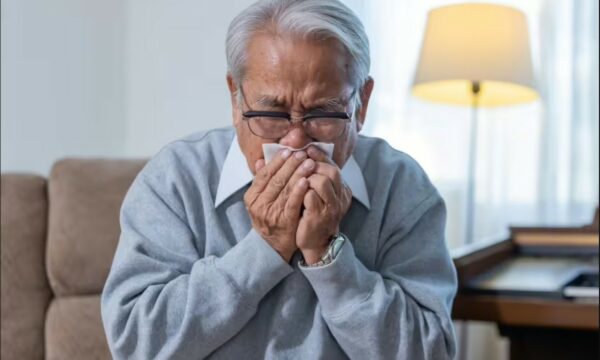
Lajme
string(80) "59-percent-of-kosovo-citizens-against-rescinding-tariffs-on-serbian-goods-survey"
Gazeta Express
05/12/2019 15:0159 percent of Kosovo citizens against revoking tariffs on Serbian goods, survey


Gazeta Express
05/12/2019 15:01The Kosovo Democratic Institute (KDI) has published on Thursday key findings of the public survey “Citizens’ perspective on potential topics of the final agreement between Kosovo-Serbia.” According to KDI the results from this surveys aim to present the citizen’s perspective about their expectations about the future of the Kosovo-Serbia dialogue, which should be taken into account by all stakeholders involved in this process.
Currently Kosovo is in the process of establishing the new governing institutions and the Kosovo Government’s decision taken in November 2018 to introduce 100 percent tax on all Serbian imports will be one of the remaining topics related to the dialogue process and will need to be addressed by this Government. According to KDI the respondents were asked about their stance on whether the next government should open the path for dialogue with Serbia by suspending the tariff. “The response of 59% of the surveyed citizens were that the Government should not suspend the tariff to open the path for dialogue, while 34% of them thought that this should happen, and 8% of citizens responded that they did not know what the Government’s decision on this issue should be,” the KDI says in its report.
Based on the ethnicity, there were differences in the responses of respondents from the Albanian community, the Serb community and other non-majority communities. 86% of Kosovo Serb respondents think that the Government of Kosovo should suspend the tariff to open the path for dialogue versus 32% of Kosovo Albanian respondents and 24% of other non-majority communities that share the same opinion. On the other hand, 61% of the respondents from the Albanian community, 56% of the respondents from other non-majority communities and 10% of the respondents from the Serb community think that the tariff should remain in force.
The KDI asked the respondents whether they understand the meaning of the term “border correction,” between Kosovo and Serbia introduced by Kosovo president Hashim Thaci in 20017. In relation to this, 45% of respondents responded that they clearly understood the meaning of this term, versus 31% of respondents who understood it partly and 20% of respondents that did not understand what the term ‘border correction’ meant. Only 3% of the respondents refused to answer this question.
KDI wanted to know what the citizens thought of the Association of Serb-majority Municipalities of Serb-Majority Municipalities with executive powers meant. In relation to that, 39% of the surveyed citizens responded that they understood what this term meant, versus 29% of the surveyed citizens who stated that they did not understand what the Association with executive powers meant. Whereas, 27% said that they partly understood what this term meant. Whereas, 4% of the surveyed citizens refused to answer this question.
Currently, the dialogue process between Kosovo and Serbia remains suspended and the future of this process is unclear. It is also unknown what topics will be discussed in this process, which topics could potentially be part of a comprehensive legally-binding agreement between Kosovo and Serbia. In this regard, KDI wanted to know the opinion of the citizens of Kosovo about the topics that the Kosovo-Serbia agreement should contain. One of the issues that citizens rated as the most important issue at 71%, is the one of missing persons. On the other hand, war crimes (60%) and war reparations (59%) rank as very highly in percentage, which according to the citizens should also be an integral part of the Kosovo – Serbia agreement. Further, citizens also consider the war apology as an important part of the agreement with 56% and the return of the pension fund with 41%. Whereas, mutual recognition was assessed with 38%, which according to the citizens, should also be one of the components of this agreement. On the other hand, at the rate of 25% and below, issues considered by the citizens that should be part of this agreement were: return of artefacts (25%), Kosovo membership in international organizations (23%), border correction (20%), economic cooperation (14%), demarcation of the border between the two states (13%), advancement of the rights of the Albanian community in Serbia (12%), youth cooperation (9%), succession (8%), cultural co-operation (7%), advancement of the rights of the Serb community in Kosovo (6%) and the association of Serb-majority municipalities (5%). /GazetaExpress/
AdvertisementTë tjera nga rubrika

Fryrja mund të mos jetë IBS

Pse disa njerëz nuk e kapërcejnë kurrë humbjen

Test i thjeshtë i simptomave për të dalluar Covid-in nga gripi

Simptoma pak e njohur e kancerit të syrit që shpesh ngatërrohet me diçka normale

Injeksionet për dobësim po përdoren më shumë nga gratë dhe shtresat e mesme

Tetë ditë pa gjumë, drejt psikozës
AdvertisementTe fundit

Fryrja mund të mos jetë IBS

ASK: Çmimet në janar 5.8 % më të larta se një vit më parë

Pse disa njerëz nuk e kapërcejnë kurrë humbjen

Një gotë qumësht pas ushtrimeve forcon kockat

Test i thjeshtë i simptomave për të dalluar Covid-in nga gripi

Komiteti spanjoll i gjyqtarëve pezullon arbitrin e VAR-it pas penalltisë së dhënë për Vinícius
Advertisement✕





